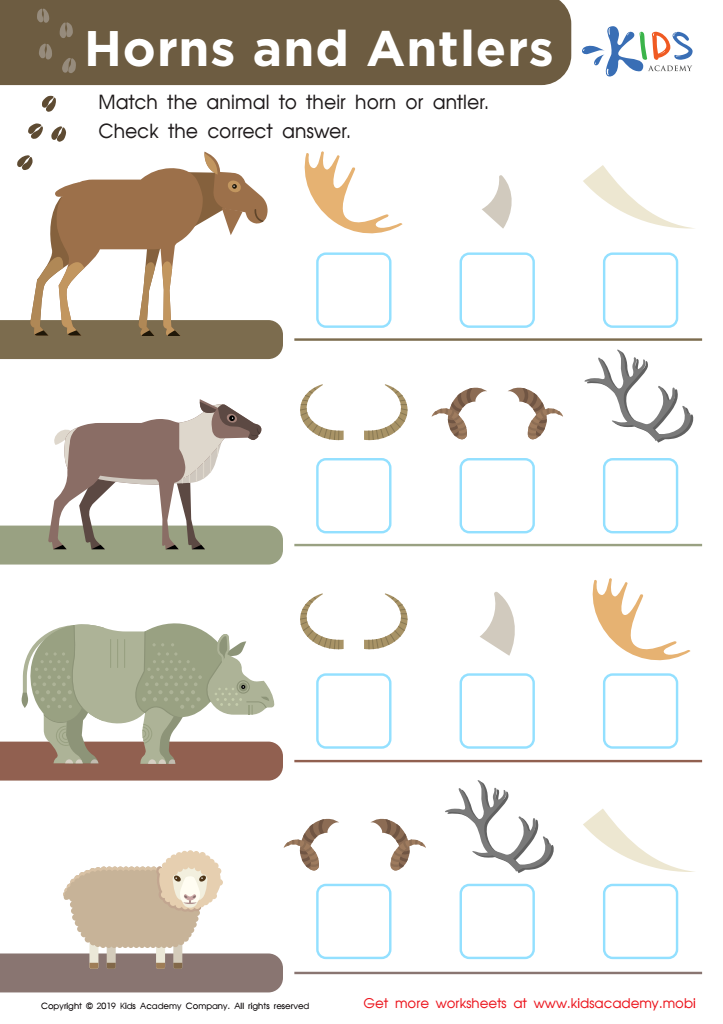Expanding animal knowledge Worksheets for Kids
1 filtered results
-
From - To


Horns and Antlers Worksheet
Question/Answer
How does the mastery of the Expanding animal knowledge skill affect a student's performance at an early age?
Mastery of the Expanding Animal Knowledge skill at an early age can significantly enhance a student's performance by fostering curiosity, improving reading comprehension, and enhancing empathy. It also boosts scientific thinking and vocabulary expansion, contributing to a well-rounded educational foundation. This early competence in understanding animals and their environments sets a strong basis for lifelong learning and environmental stewardship.
How to test a Grade 1 student’s Expanding animal knowledge skills?
To test a Grade 1 student's expanding animal knowledge skills, use a variety of methods including picture cards, matching games, and simple questionnaires. Ask them to identify different animals, categorize them into groups (e.g., mammals, birds, fish), describe basic habitats, and share simple facts. Include both familiar and new animals to assess comprehension and learning ability.
Why is the Expanding animal knowledge skill important for Grade 1 students?
Expanding animal knowledge in Grade 1 students is important because it fosters curiosity, encourages respect for living things, and supports foundational science learning. This knowledge aids in the development of observational skills, understanding of habitats, and the concept of diversity. It also enhances vocabulary and comprehension, making it a vital component of early educational development.
 Assign to the classroom
Assign to the classroom











